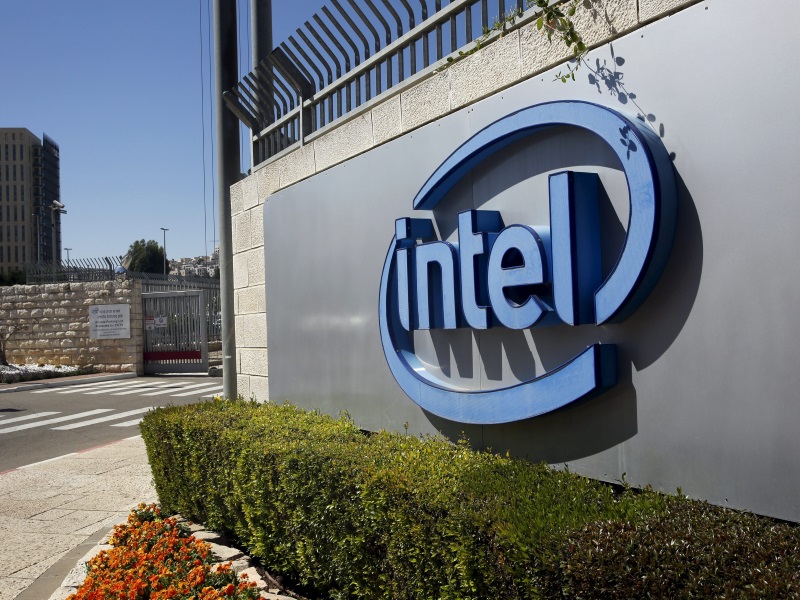- Home
- Internet
- Internet Features
- Intel and Microsoft Face Different Challenges in Shifts to Cloud
Intel and Microsoft Face Different Challenges in Shifts to Cloud

Microsoft has seen strong long-term growth in parts of its cloud business, a combination of services and software catering to corporations moving computing functions to remote data centres run by outside providers.
While revenue for its flagship cloud services business Azure more than doubled last quarter, the company said in Thursday's earning report, the "intelligent cloud" division that includes it saw just 3 percent revenue growth in the period. And operating profits for the division dropped by 14 percent, in part reflecting non-cloud products included under its umbrella, such as traditional server software.
Chipmaker Intel has a less clear path to growth for its cloud operations, and investors have remained sceptical. The company's share price is down about 1 percent over the last year, as software maker Microsoft's stock rose about 30 percent. Microsoft's market capitalisation of around $440 billion is almost three times Intel's at $151 billion (roughly Rs. 10,04,565 crores), compared to about double five years ago.
"Wintel" computers running Windows on Intel chips dominated the personal-computing era, which is slowly ending as more people turn to mobile phones for computing needs and corporations deemphasize desktops. Both Intel and Microsoft, run by relatively new CEOs Brian Krzanich and Satya Nadella, are betting their businesses on the cloud.
At Intel, in a quarter where the company announced plans to cut 12,000 jobs as it shifts away from the PC, data-centre business revenue rose 9 percent to $4 billion. That segment includes the chips powering cloud data centres, where the company says it is doing well.
"There's this perception that Microsoft is more on the cusp and benefiting from this (cloud) trend," said Dan Morgan, a fund manager at Synovus Trust Co who holds both companies in his portfolio. "Intel is still more drowned out," meaning not as high-profile.
Microsoft's best-known play in the cloud is Azure, a set of services for computing and storage as well as tools for software developers.
Azure is gaining ground on Amazon's AWS unit, the industry heavyweight in cloud computing services. Azure commands about 10 percent of the $23 billion (roughly Rs. 1,53,013 crores) market, estimates Synergy Research, compared with AWS' 31 percent.
Intel has done well in its category, dominating the market for processor chips that are the brains of data centre computers, but the business faces major pressures.
Much of the difference in the companies' fortunes boils down to Microsoft's fundamental business as a software company versus Intel's as a hardware company, said Nick Sturiale, a venture capitalist at Ignition Partners.
Clients are spending an ever-larger part of their technology budget on software, according to research firm Gartner. And Intel's customer base for data-centre chips is consolidating into a few big companies, including Facebook, Google, Amazon and Microsoft itself, from a much wider group.
"The cloud vendors are brutal price negotiators and have more power over Intel," said Sturiale. Average prices of data centre chips fell 3 percent in the last quarter, although Intel said that reflected the fact that cheaper chips were gaining ground the fastest.
Intel could suffer as big data-centre builders like Facebook increasingly design their own data-centre hardware. So far, Intel has held its own, but one day its customers could extend their cost-cutting to chips.
In a call this week with analysts, Krzanich said Intel's "top to bottom" understanding of the cloud-based data centre and keen eye on competitors would help it stay ahead.
"Always paranoid about the competition, always driving," he said. "And you know that we live or die by the performance of our product."
Intel makes other promising products, including chips for Internet-connected devices known as the Internet of Things. If a blockbuster consumer or business product in that market comes along, those chips could take off.
And Microsoft may be over emphasising how far it has come. Much of its "intelligent cloud" business comprises software for traditional on-premises servers and other businesses with little to do with the cloud. A spokeswoman said the segment's name "is to align to the ambition" of building the cloud.
Microsoft also is good at playing up its cloud business. In its January earnings call with investors, the term "cloud" came up 59 times. In Intel's call this week, it came up 11 times.
© Thomson Reuters 2016
Catch the latest from the Consumer Electronics Show on Gadgets 360, at our CES 2026 hub.
Related Stories
- Samsung Galaxy Unpacked 2025
- ChatGPT
- Redmi Note 14 Pro+
- iPhone 16
- Apple Vision Pro
- Oneplus 12
- OnePlus Nord CE 3 Lite 5G
- iPhone 13
- Xiaomi 14 Pro
- Oppo Find N3
- Tecno Spark Go (2023)
- Realme V30
- Best Phones Under 25000
- Samsung Galaxy S24 Series
- Cryptocurrency
- iQoo 12
- Samsung Galaxy S24 Ultra
- Giottus
- Samsung Galaxy Z Flip 5
- Apple 'Scary Fast'
- Housefull 5
- GoPro Hero 12 Black Review
- Invincible Season 2
- JioGlass
- HD Ready TV
- Laptop Under 50000
- Smartwatch Under 10000
- Latest Mobile Phones
- Compare Phones
- Honor Magic 8 RSR Porsche Design
- Honor Magic 8 Pro Air
- Infinix Note Edge
- Lava Blaze Duo 3
- Tecno Spark Go 3
- iQOO Z11 Turbo
- OPPO A6c
- Samsung Galaxy A07 5G
- Lenovo Yoga Slim 7x (2025)
- Lenovo Yoga Slim 7a
- Lenovo Idea Tab Plus
- Realme Pad 3
- Moto Watch
- Garmin Quatix 8 Pro
- Haier H5E Series
- Acerpure Nitro Z Series 100-inch QLED TV
- Asus ROG Ally
- Nintendo Switch Lite
- Haier 1.6 Ton 5 Star Inverter Split AC (HSU19G-MZAID5BN-INV)
- Haier 1.6 Ton 5 Star Inverter Split AC (HSU19G-MZAIM5BN-INV)







![[Sponsored] Haier C90 OLED TV | Dolby Vision IQ, 144Hz OLED and Google TV in Action](https://www.gadgets360.com/static/mobile/images/spacer.png)









